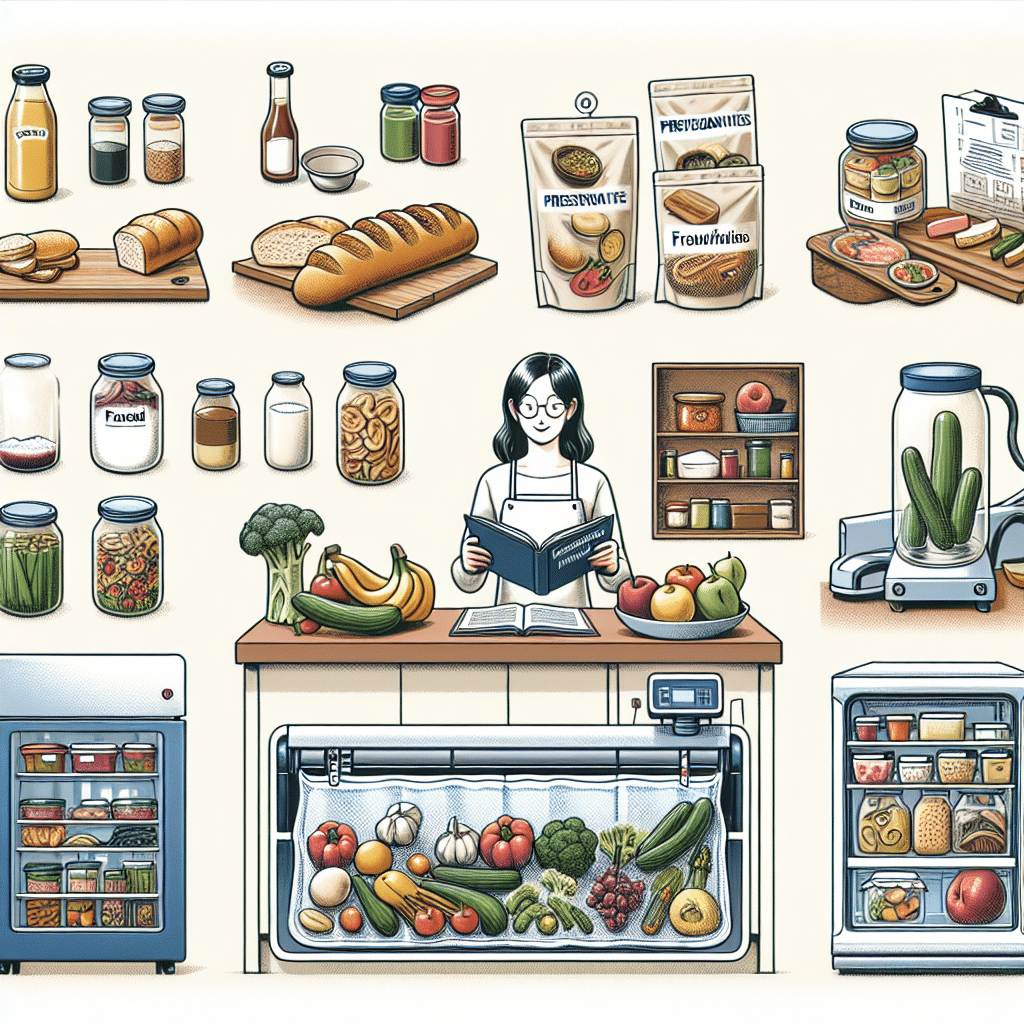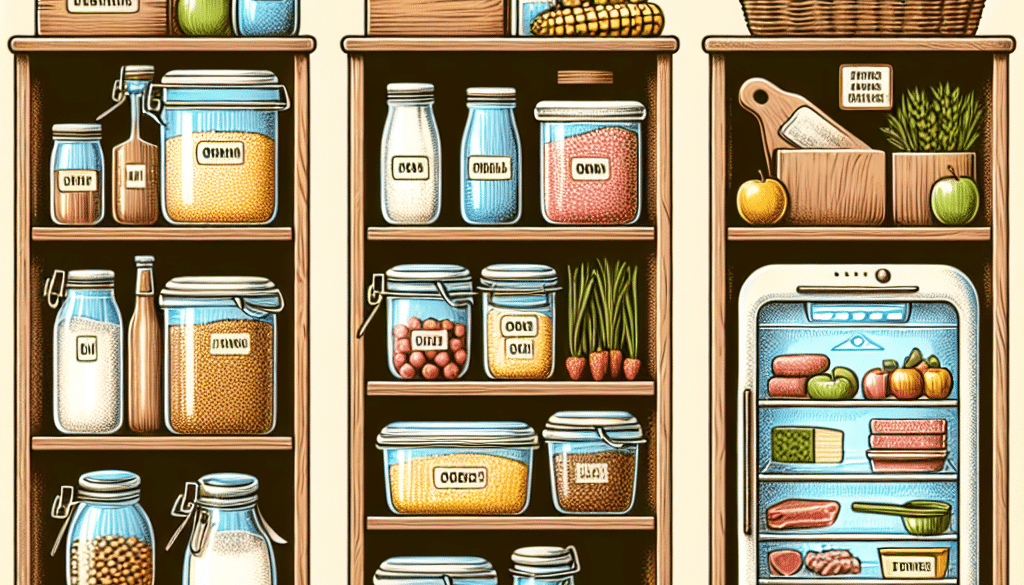How to increase shelf life of food products
-
Table of Contents
- Extend Food Product Shelf Life: Proven Strategies and Techniques
- Understanding Shelf Life and Its Importance
- Techniques to Increase Shelf Life
- Physical Methods
- Chemical Methods
- Biological Methods
- Case Studies and Examples
- Emerging Technologies and Trends
- Regulatory Considerations
- Conclusion: Key Takeaways for Longer Shelf Life
- Enhance Your Products with ETprotein’s High-Quality Proteins
Extend Food Product Shelf Life: Proven Strategies and Techniques

Ensuring that food products remain fresh and safe for consumption over extended periods is a critical challenge for the food industry. Increasing the shelf life of food not only reduces waste but also enhances consumer satisfaction and business profitability. This article explores various methods to prolong the shelf life of food products, incorporating scientific advancements and industry practices.
Understanding Shelf Life and Its Importance
The term ‘shelf life’ refers to the duration a food product can be stored without compromising its safety, taste, nutritional value, and other quality parameters. Extending shelf life is vital for several reasons:
- It allows for longer distribution times, making it possible to reach wider markets.
- It reduces food waste by giving consumers more time to use the product before it spoils.
- It contributes to food security by ensuring a stable supply of food products.
Techniques to Increase Shelf Life
There are numerous techniques that manufacturers can employ to extend the shelf life of food products. These methods can be broadly categorized into physical, chemical, and biological strategies.
Physical Methods
- Packaging Innovations: Advanced packaging solutions such as vacuum packing, modified atmosphere packaging (MAP), and active packaging can significantly extend shelf life by reducing oxygen levels and inhibiting microbial growth.
- Temperature Control: Proper refrigeration and freezing are among the most effective ways to preserve food. Cold temperatures slow down the growth of bacteria and enzymatic reactions that cause spoilage.
- Dehydration: Removing moisture from food through drying or freeze-drying prevents microbial growth and enzymatic reactions, thus extending shelf life.
Chemical Methods
- Preservatives: Adding chemical preservatives like benzoates, sorbates, and nitrates can inhibit microbial growth and oxidation, thereby prolonging shelf life.
- Antioxidants: Antioxidants such as Vitamin C (ascorbic acid) and Vitamin E (tocopherols) can prevent oxidative spoilage, maintaining the quality of food products.
Biological Methods
- Biopreservation: Utilizing natural or controlled microbial cultures, such as probiotics, can suppress the growth of spoilage organisms.
- Enzyme Inhibitors: Enzyme inhibitors can be used to slow down the biochemical processes that lead to food degradation.
Case Studies and Examples
Several case studies highlight the effectiveness of these methods in extending shelf life:
- A study on the use of MAP in fresh-cut vegetables showed a shelf life increase from a few days to up to two weeks.
- The application of natural preservatives like rosemary extract has been successful in prolonging the shelf life of meat products.
- Freeze-drying fruits has allowed for shelf lives extending to several months without significant loss of nutrients.
Emerging Technologies and Trends
Advancements in technology are continuously contributing to the development of new methods for shelf life extension:
- High-Pressure Processing (HPP): This non-thermal pasteurization method inactivates pathogens and spoilage organisms while preserving food quality.
- Edible Coatings: Applying edible films made from proteins, polysaccharides, or lipids can create a barrier to moisture and gas exchange, extending shelf life.
- Smart Packaging: Packaging that can monitor the condition of the food and provide information on its freshness is gaining popularity.
Regulatory Considerations
When implementing shelf life extension methods, it is crucial to comply with food safety regulations. Preservatives and other additives must be approved by regulatory bodies such as the FDA or EFSA, and their use must be within specified limits.
Conclusion: Key Takeaways for Longer Shelf Life
To increase the shelf life of food products, manufacturers should consider a combination of physical, chemical, and biological methods tailored to the specific needs of their products. Innovations in packaging, temperature control, and the use of natural preservatives are among the most effective strategies. Emerging technologies like HPP and smart packaging are also promising areas for future development. Compliance with food safety regulations is essential in all shelf life extension efforts.
Enhance Your Products with ETprotein’s High-Quality Proteins
ETprotein’s range of organic bulk vegan proteins and L-(+)-Ergothioneine (EGT) can be a valuable addition to food products, potentially contributing to shelf life extension. Their proteins are characterized by a neutral taste, non-GMO, and allergen-free attributes, while their EGT offerings boast high purity levels suitable for various industries.
For manufacturers looking to improve the nutritional profile and shelf life of their products, ETprotein’s proteins and EGT can be an excellent choice. To explore how ETprotein can enhance your food products, contact them at sales(at)ETprotein.com.
About ETprotein:
ETprotein, a reputable protein and L-(+)-Ergothioneine (EGT) Chinese factory manufacturer and supplier, is renowned for producing, stocking, exporting, and delivering the highest quality organic bulk vegan proteins and L-(+)-Ergothioneine. They include Organic rice protein, clear rice protein, pea protein, clear pea protein, watermelon seed protein, pumpkin seed protein, sunflower seed protein, mung bean protein, peanut protein, and L-(+)-Ergothioneine EGT Pharmaceutical grade, L-(+)-Ergothioneine EGT food grade, L-(+)-Ergothioneine EGT cosmetic grade, L-(+)-Ergothioneine EGT reference grade and L-(+)-Ergothioneine EGT standard. Their offerings, characterized by a neutral taste, non-GMO, allergen-free attributes, with L-(+)-Ergothioneine purity over 98%, 99%, cater to a diverse range of industries. They serve nutraceutical, pharmaceutical, cosmeceutical, veterinary, as well as food and beverage finished product distributors, traders, and manufacturers across Europe, USA, Canada, Australia, Thailand, Japan, Korea, Brazil, and Chile, among others.
ETprotein specialization includes exporting and delivering tailor-made protein powder and finished nutritional supplements. Their extensive product range covers sectors like Food and Beverage, Sports Nutrition, Weight Management, Dietary Supplements, Health and Wellness Products, and Infant Formula, ensuring comprehensive solutions to meet all your protein needs.
As a trusted company by leading global food and beverage brands and Fortune 500 companies, ETprotein reinforces China’s reputation in the global arena. For more information or to sample their products, please contact them and email sales(at)ETprotein.com today.














